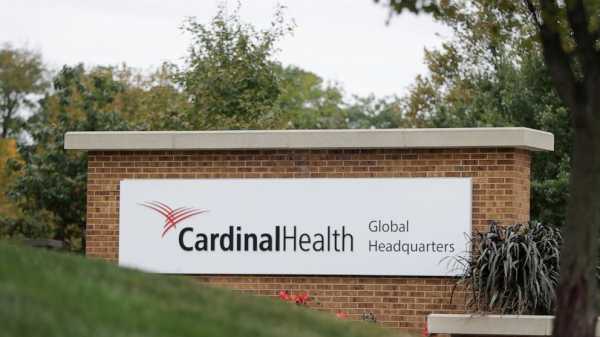
Negotiations aimed at reaching a major settlement in the nation’s opioid litigation reached an impasse Friday.
Key differences were between state attorneys general and lawyers representing local governments, rather than with the drugmakers and distributors they are suing.
One of the negotiators, North Carolina Attorney General Josh Stein, said late Friday that local governments did not accept a deal worth $48 billion in cash, treatment drugs and services.
“We’re disappointed that the cities and counties refused to go along with that deal,” he said during a news conference in Cleveland after talks under the watch of a federal judge had ended for the day. “This would have helped the entire nation, not just a few counties, not just a few cities.”
Stein and attorneys general for Pennsylvania, Tennessee and Texas led the talks on behalf of the states. They said going to trial would mean that the first local governments to win cases would get relief, rather than having money and treatment drugs distributed equitably across the country.
Paul Farrell, a lead lawyer for the local governments, told The Associated Press that one hang-up was the states’ desire to be in charge of dividing the money. They said that the deal would provide free Suboxone, a drug used to treat opioid addiction, across the country.
State and local governments have been at odds for during the litigation. Ohio’s attorney general even tried to get the federal trial put on hold, arguing the state’s claims in state court should go first.
Earlier in the day, another of the lead lawyers, Paul Hanly, told The Washington Post that the drugmakers Teva and Johnson & Johnson as well as the distributors AmerisourceBergen, Cardinal Health and McKesson were not willing to increase their offer.
In a statement, the lead lawyers for the local governments said their goal with a settlement would be one that would ensure “these resources will be directed exclusively toward efforts to abate the opioid epidemic.”
Talks can continue, but opening statements are scheduled for Monday in the first federal trial over the opioid epidemic, which has contributed to the deaths of 400,000 Americans over the past two decades.
“When the first day of trial starts Monday, we look forward to sharing the facts — and the facts will show that opioid makers and distributors conspired to create and benefit from the worst public health crisis in decades,” the lawyers said.
In a statement, Cardinal Health expressed disappointment.
“The attorneys general and the distributors reached common ground. We worked hard all day and into the evening to find a path forward, for everyone. Unfortunately, some parties to this litigation, and their lawyers, would not agree,” the company said. “Those parties asked for more, and we dug deep. They would not accept our good faith efforts.”
That trial involves claims by two Ohio counties, but it’s considered a test case for similar lawsuits from governments across the country. The defendants in the case are Teva, the three major distributors, the smaller distributor Henry Schein, and Walgreens.
Johnson & Johnson previously settled with the two counties. Three other manufacturers also settled with the counties and another, OxyContin maker Purdue, is attempting to reach a deal to end all its lawsuits through bankruptcy court; on that, about half the states and many local governments oppose accepting the offer as it stands.
U.S. District Court Judge Dan Polster has said he wants the parties to strike a settlement in such a way that it would make a real difference in resolving the crisis. He invited state attorneys general to participate in the negotiations even though their lawsuits against the industry were filed in state courts.
Sourse: abcnews.go.com






